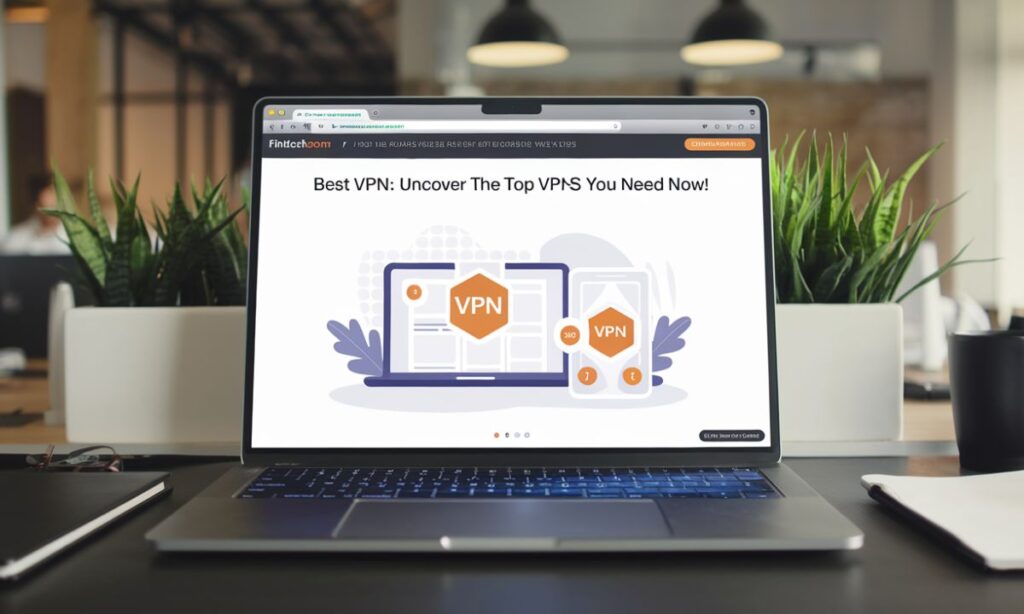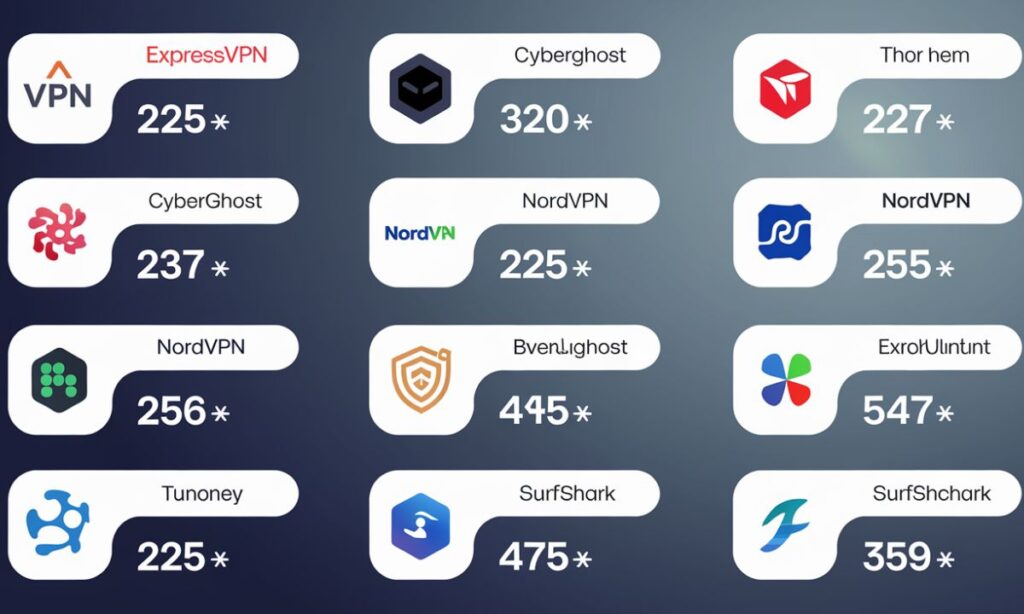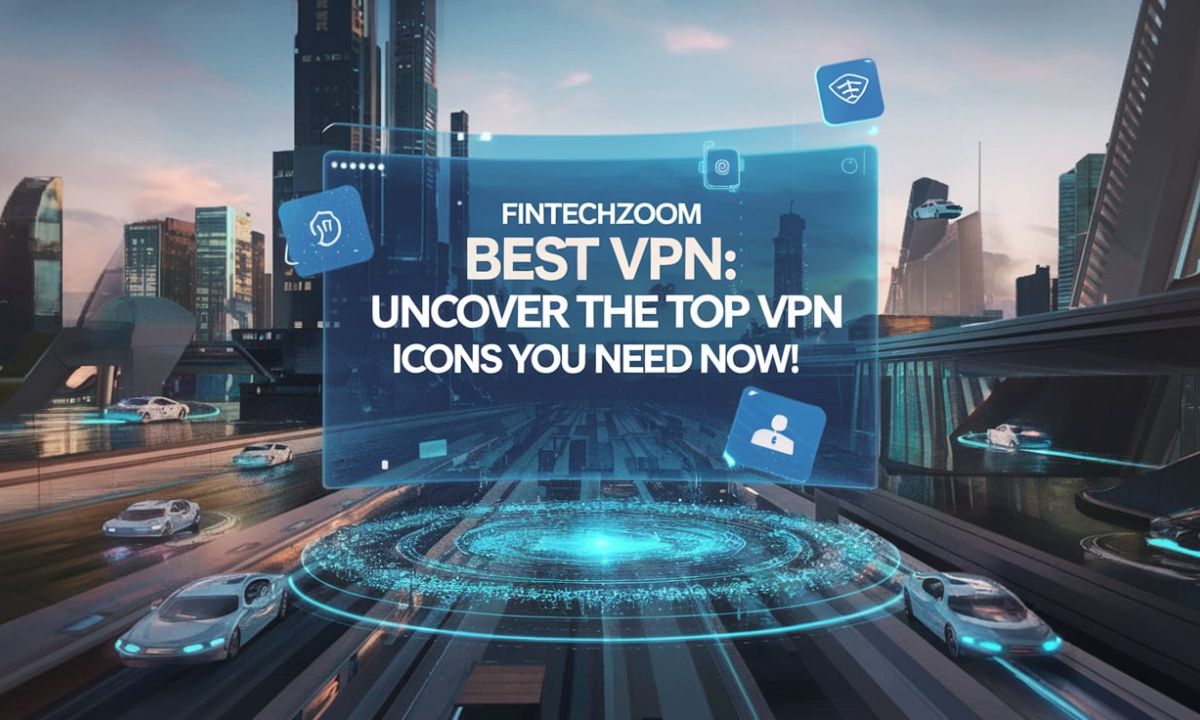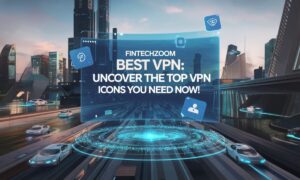In the digital age of 2024, online privacy and security are more important than ever. The internet is rife with cybersecurity threats such as data breaches, cyber attacks, and pervasive tracking. Whether you are streaming content, shopping online, or using public Wi-Fi, your personal data is at risk.
The best defense? A Virtual Private Network (VPN). This article delves into the top VPNs recommended by FintechZoom, providing comprehensive insights on why you need a VPN, how they protect your privacy, and what features to look for when choosing the best service.
Why You Need a VPN in 2024
As we become increasingly reliant on the internet for everyday tasks, the risk of cybersecurity threats grows. In 2024, hackers are more sophisticated, targeting both individuals and businesses through various means, including phishing scams, malware, ransomware, and data theft. In this environment, a VPN is no longer a luxury but a necessity for securing your online activities.
The Growing Threat of Cyber Attacks
Cyber attacks are increasing in both frequency and complexity. According to a report from cybersecurity experts, the number of cyber breaches targeting personal data and businesses grew by 40% in 2023.
The methods of attack have become more advanced, with cybercriminals deploying ransomware, phishing, and man-in-the-middle attacks that steal your sensitive data, such as credit card information and login credentials.
Public Wi-Fi networks, in particular, are vulnerable to attacks. When you connect to public hotspots, such as in cafes, airports, or libraries, your data becomes exposed to hackers. This is where a VPN comes into play, encrypting your connection to prevent outsiders from monitoring or hijacking your information.
VPNs Protect Your Online Privacy
A VPN acts as a virtual tunnel, rerouting your internet traffic through secure, high-speed servers located worldwide. This process effectively hides your IP address and encrypts your data, making it nearly impossible for anyone—including hackers, ISPs (Internet Service Providers), or even government agencies—to spy on your activities. With the help of strong encryption standards, like AES-256, VPNs ensure your data remains safe, even on unsecured networks.
VPNs Unlock Access to Streaming Services
Beyond security, VPNs have become invaluable tools for bypassing geo-restrictions on streaming services such as Netflix, Hulu, BBC iPlayer, and more. Many streaming platforms limit access to specific content based on geographic location.
However, by connecting to servers in different countries, VPNs allow you to “spoof” your location and access libraries from anywhere in the world. Whether you’re a US-based user wanting to watch UK-exclusive shows or a traveler trying to access your home country’s content, VPNs unlock a world of entertainment.
What Makes a VPN “Best” According to FintechZoom?

There are hundreds of VPNs available, but only a select few meet the rigorous standards necessary to be considered the best. According to FintechZoom, the top VPNs excel in the following areas:
Strong Encryption Standards
One of the core features of any VPN is encryption, and the best VPNs use AES-256 encryption, the gold standard in the industry. This encryption method scrambles your data into unreadable code that can only be decrypted by a secure key. Governments and military organizations use AES-256 to protect classified information, making it highly reliable for personal privacy as well.
When choosing a VPN, look for additional encryption protocols like OpenVPN, WireGuard, and IKEv2, which further enhance the security of your connection.
No-Logs Policy for Maximum Privacy
A no-logs policy ensures that the VPN provider does not track or store any information about your online activities. This is vital for protecting your anonymity on the internet. The best VPNs prioritize user privacy, pledging not to keep any logs of your browsing data, IP addresses, or session information. This commitment is crucial for users seeking to protect themselves from potential government surveillance or data collection practices.
In some cases, VPN providers have their no-logs policies audited by independent third parties to verify compliance, giving you extra peace of mind.
Large Server Networks with High-Speed Servers
A large server network is another factor that sets the best VPNs apart. A broad range of high-speed servers spread across multiple countries provides more flexibility in choosing optimal connections. For example, a VPN with servers in 100+ locations allows users to access geo-restricted content from around the globe, providing seamless streaming and browsing.
Furthermore, a larger network also means less server congestion, leading to faster connections and low latency. High-speed VPNs ensure that even when you’re using data-intensive services like 4K streaming or online gaming, you won’t experience annoying lags or buffering.
FintechZoom’s Top 5 Best VPNs for 2024

To help you make an informed decision, FintechZoom has selected the top VPNs for 2024 based on their security, usability, and overall performance. Here’s a detailed look at the best options:
1. ExpressVPN
ExpressVPN consistently ranks among the top VPN providers due to its blazing-fast speeds and industry-leading security features. It boasts a vast server network with over 3,000 servers in 94 countries, allowing users to bypass geo-restrictions and enjoy content from all over the world.
Key Features:
- AES-256 encryption
- No-logs policy
- 24/7 live chat support
- Optimized for streaming services like Netflix, Hulu, and more
- Split tunneling feature for advanced customization
ExpressVPN is known for its robust performance in accessing restricted content and bypassing censorship, making it an excellent choice for users in regions with strict internet laws.
2. NordVPN
NordVPN is a powerhouse in terms of both security and features. With over 5,400 servers across 60 countries, NordVPN offers ultra-fast connections and exceptional privacy. Its Double VPN feature encrypts your data twice, routing your traffic through two servers for an extra layer of protection.
Key Features:
- AES-256 encryption
- No-logs policy
- Double VPN for extra security
- CyberSec feature blocks ads and malware
- P2P support for torrenting
NordVPN is also widely used by individuals who prioritize privacy and security. Its CyberSec feature blocks malicious websites and annoying ads, creating a safer browsing experience.
3. CyberGhost
For those new to VPNs, CyberGhost offers an excellent combination of ease-of-use and strong security. It has over 7,800 servers in 91 countries, including optimized servers for streaming and torrenting. CyberGhost is user-friendly and supports up to seven simultaneous connections on one account, making it ideal for families or individuals with multiple devices.
Key Features:
- AES-256 encryption
- No-logs policy
- Streaming-optimized servers
- Automatic kill switch
One of CyberGhost’s standout features is its optimized servers for different tasks, such as streaming, gaming, or secure browsing. This makes it particularly appealing for users looking for a hassle-free VPN experience.
4. Surfshark
Surfshark is known for its affordability without compromising on essential features. It allows unlimited device connections on one account, making it a top pick for large households or users with multiple devices. With over 3,200 servers in 100 countries, Surfshark delivers a solid combination of usability, performance, and cost-effectiveness.
Key Features:
- AES-256 encryption
- No-logs policy
- MultiHop mode (double VPN)
- Unlimited devices per subscription
Surfshark’s MultiHop feature allows users to route their internet traffic through multiple countries, further enhancing security and anonymity.
5. Hotspot Shield
Hotspot Shield is favored for its speed, making it perfect for users focused on streaming and gaming. Its Catapult Hydra protocol enhances connection speeds without compromising on security. Hotspot Shield has 3,200 servers in 80+ countries, providing solid global coverage for its users.
Key Features:
- AES-256 encryption
- No-logs policy
- Catapult Hydra protocol for enhanced speed
- Works with Netflix, Amazon Prime, and other streaming services
Hotspot Shield’s ability to unblock streaming platforms, coupled with its performance-focused design, makes it one of the fastest VPNs on the market.
Free VPNs vs. Paid VPNs: What’s the Difference?
A common question users face is whether to choose a free VPN or invest in a paid VPN service. While free VPNs may seem appealing, they come with significant limitations compared to their paid counterparts.
Pros and Cons of Free VPNs
Advantages:
- No cost
- Easy to set up
- Offers basic privacy protection
While free VPNs can be useful for short-term needs or basic web browsing, they often come with several downsides. Many free providers limit server locations, resulting in slower speeds and unreliable connections. Additionally, some free VPNs may collect your data or show intrusive ads to monetize their services.
Disadvantages:
- Limited server locations and slower speeds
- May log your data or show ads
- Lack of robust security features
- Often incompatible with streaming services
Why Paid VPNs Offer Superior Performance
On the other hand, paid VPNs offer enhanced performance, strong encryption standards, and broader server networks. Users of paid VPN services can access content without the worry of geo-restrictions, enjoy faster speeds, and take advantage of advanced security features like Double VPN or split tunneling.
Key Benefits of Paid VPNs:
- Access to thousands of servers worldwide
- Reliable streaming with no buffering
- High-speed servers with low latency
- No-logs policy ensuring complete anonymity
- Advanced security protocols
Investing in a VPN subscription not only ensures your privacy but also provides peace of mind that your data won’t be sold or misused. Popular paid VPNs like ExpressVPN, NordVPN, and CyberGhost come with additional perks like 24/7 customer support, VPN speed tests, and multi-device compatibility.
What to Consider When Choosing a VPN
With so many VPN options available, selecting the right one can be overwhelming. Here are some key factors to consider when choosing a VPN service:
Usability and Compatibility
Your VPN should be user-friendly and compatible with all your devices, including smartphones, laptops, tablets, and even routers. Multi-device support is essential in today’s connected world, allowing you to secure all your gadgets with a single subscription.
Look for VPNs that offer easy-to-navigate apps for iOS, Android, Windows, and macOS. Additionally, check if the VPN supports simultaneous connections, allowing you to use the service on multiple devices at the same time.
High-Speed Servers and VPN Speed
VPN speed is crucial, especially if you plan to use the service for bandwidth-heavy activities like streaming, gaming, or video conferencing. Choose a VPN with a large number of high-speed servers and minimal impact on your connection. VPN performance can vary by location, so make sure the service provides a range of global servers.
A fast VPN should maintain your internet speed while providing strong encryption, allowing you to stream, browse, and game without interruption.
Privacy and No-Logs Policy
Privacy is the main reason for using a VPN, so ensure that the provider offers a no-logs policy. This guarantees that none of your online activities are stored or tracked. Additionally, look for a provider based in a privacy-friendly jurisdiction, as countries like the United States and the UK are part of surveillance alliances that may require VPN providers to share data.
Streaming and Geo-Restrictions
If you’re a fan of streaming services, make sure your VPN can bypass geo-restrictions. Not all VPNs work with platforms like Netflix, Hulu, or Disney+, so check if the provider has dedicated servers for streaming and whether it offers unlimited bandwidth for HD streaming.
Conclusion
In 2024, choosing the right VPN is essential for maintaining your online privacy, protecting against cybersecurity threats, and accessing restricted content. Whether you’re looking for fast connection speeds, strong encryption standards, or compatibility with streaming services, the top VPNs recommended by FintechZoom—ExpressVPN, NordVPN, CyberGhost, Surfshark, and Hotspot Shield—deliver all the features needed for safe and seamless internet use.
Take control of your digital security today by investing in a VPN that fits your needs and protects your privacy across all your devices.
FAQs
What is the best VPN for streaming?
ExpressVPN is widely considered the best VPN for streaming due to its fast speeds and ability to bypass geo-restrictions on platforms like Netflix, Hulu, and BBC iPlayer.
Can free VPNs be trusted with privacy?
Free VPNs often come with privacy risks, such as data logging or selling user information, making them less trustworthy for protecting privacy.
What makes FintechZoom’s top VPN recommendations reliable?
FintechZoom’s top VPN recommendations are based on factors like strong encryption, no-logs policies, large server networks, and high-speed performance, ensuring both security and reliability.
How can I improve my VPN speed?
To improve VPN speed, connect to a server closer to your location, choose a VPN with high-speed servers, or switch to a faster protocol like WireGuard or IKEv2.









